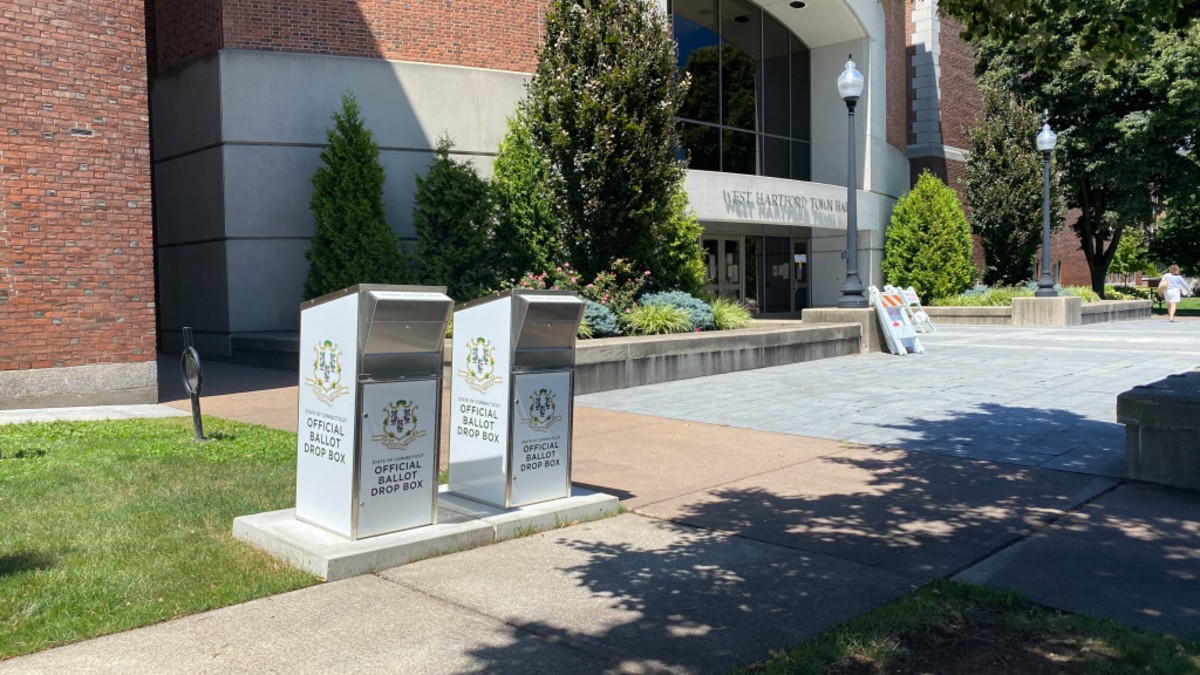Joel Nieves and the residents of the Rosette Neighborhood Village made it through peak heat this summer without power.
“It was horrific. You’re not going to be able to sleep. I slept on these chairs,” said Joel Nieves as he pointed to plastic lawn chairs in the courtyard of the village.
The community sits in the backyard of Amistad Catholic Worker home on Rosette Street. It’s made up of six livable structures and several tents where people without a home come to live.
But the state’s 6-month, one-time Temporary Structure Permit expired in June. While the city allowed the zoning for the buildings, the structures still haven’t met state building codes. So, the power was turned off after the state’s permit expired.
Get top local stories in Connecticut delivered to you every morning. Sign up for NBC Connecticut's News Headlines newsletter.
Mark Colville says they’re fighting to have the power turned back on, and they’ve hired a law firm.
“We have to go through the appeal of the actual decision to turn the power off,” Colville said. He also emphasized that the attorney’s fees could be used for other village needs.
Nieves has used an extension cord to power the CPAP machine that he needs to sleep at night. He says it’s tough being without a home and trying to get back on your feet.
Local
“We want to be part of society. But it seems that society forgets that we’re people,” Nieves said.
Mayor Justin Elicker says they’ve offered help to people at Rosette Street as well as others who are homeless. Nieves was offered an apartment in Branford with six months paid, but he turned it down. At first, he accepted because he felt he had no other choice.
“For the first 30 seconds you’re excited. Then you have to weigh things out,” he said.
He’s two years sober and thought about his progress in seeing doctors regularly as well as a therapist and psychiatrist. He said it would take several hours in a day to ride the buses from Branford to New Haven for appointments. And he said his support system is here.
“That was the only option that was given to me but it’s the wrong option.”
He walked away from the apartment offer and says he tried to explain to the city that it was better for him to stay in New Haven, and even showed NBC Connecticut a letter from his doctor.
Elicker says the city will continue to try to help Nieves, but not all the options will check all of the boxes.
“While we work very hard to find housing that is perfect, that has all the attributes that are important to people, that people wish to have, we can’t always provide what someone’s wish list is,” Elicker said. “But we can provide safe housing that is comfortable and addresses people’s needs.”
Nieves says it’s hard to get in the door to places on his disability pay, but he’s put in applications for housing on his own. With the state’s temporary permit expired and the power cut off, there’s uncertainty about what will happen as the months get colder at Rosette Street.
Colville says the issue is that structures like these didn’t exist before so they don’t have a place in the building code.
“The building code in the state simply doesn’t have a category called housing that involves a structure that doesn’t have plumbing and a kitchen in it,” Colville said. But, he says the idea is gaining attention at the capitol.
“People in the state legislature think that this is such a good idea, that there’s actually state legislation now being considered that would authorize this.”
The bill H.B. No. 5174 didn’t move in the last legislature so it would have to be reintroduced next year.
Since the state’s one-time permit has expired, the mayor says he’ll wait to see what comes out of the group’s hearing next Tuesday.
“They’ll be in front of the state and then the state makes a determination whether they wish to make another exception here or not.”



